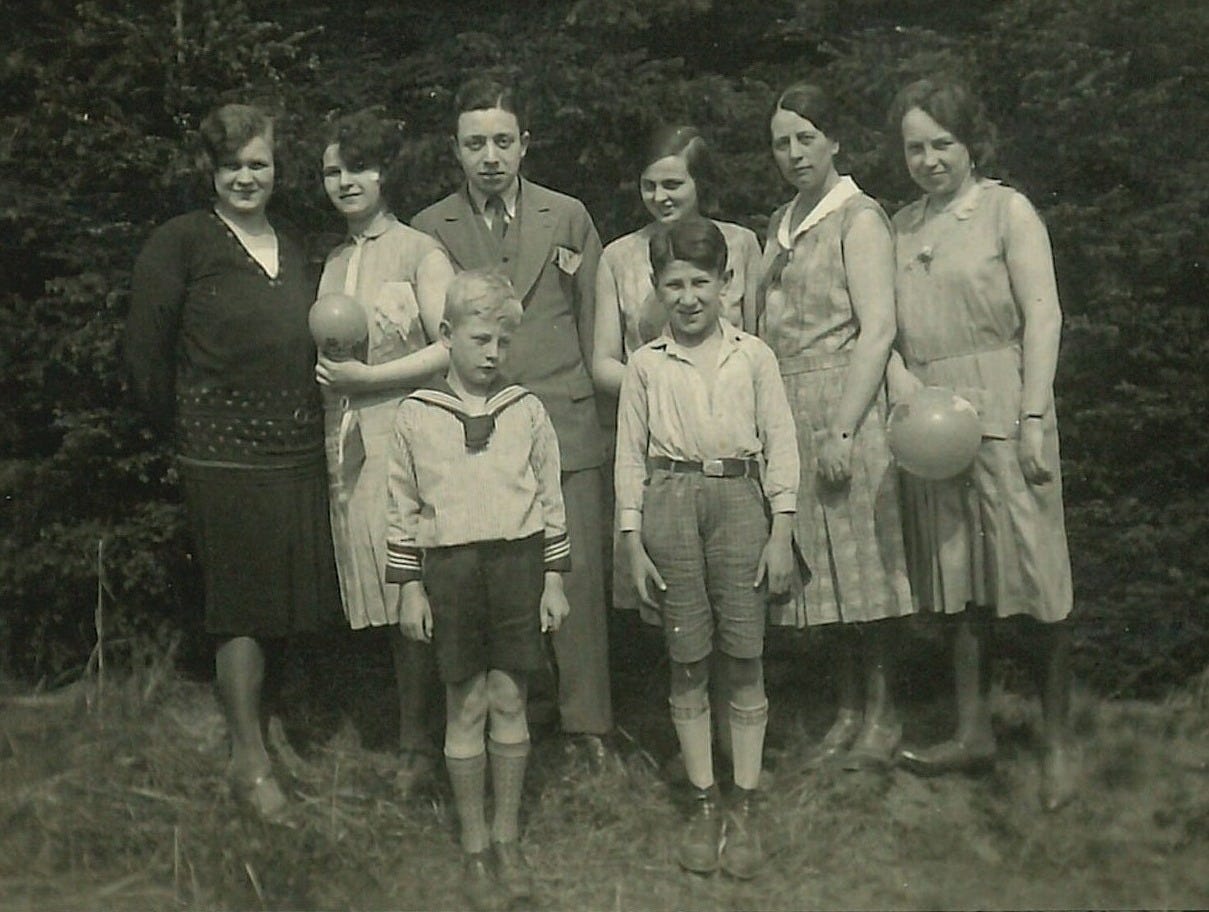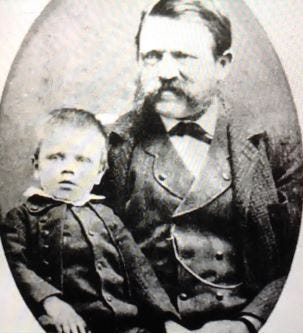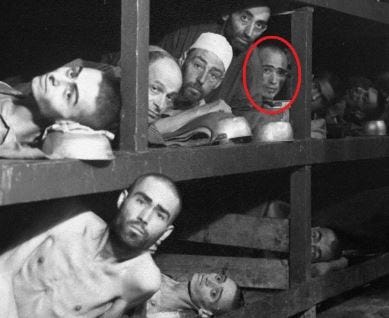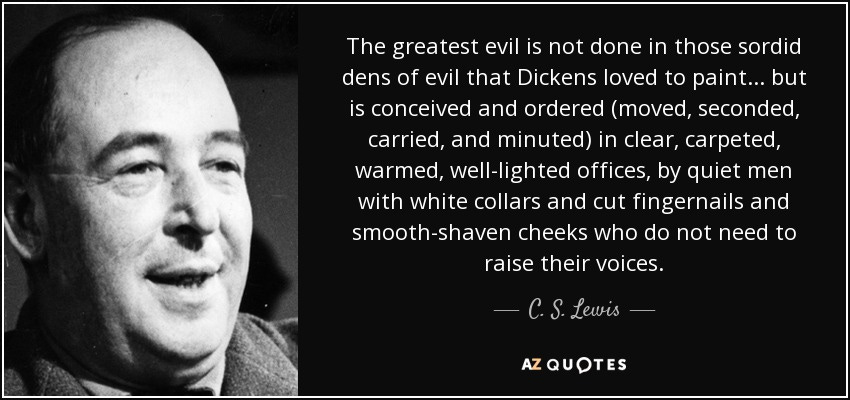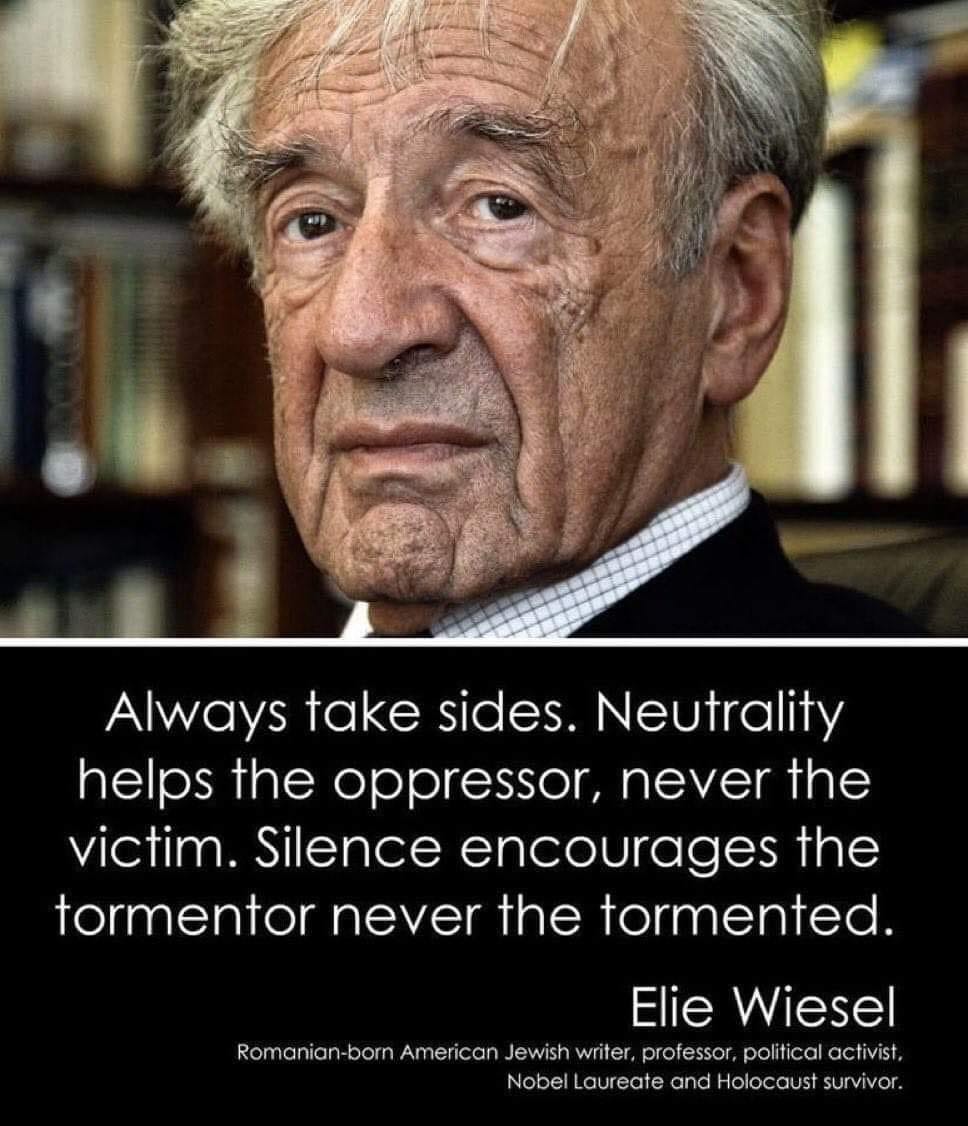In many ways, it started with Kristallnacht, that November night police and firefighters stood down while gasoline-soaked structures burned. There was no real intervention from the public as victimized neighbors—all ages, from elderly to children—were cast into cold streets or rivers. Nor did an outraged local press demand relief for the numerous upstanding members of society suddenly displaced or missing after being torn from their beds in the dead of night and beaten.
It is estimated that Kristallnacht rushed 20,000-30,000 Jewish men into concentration camps, ready-made for extrajudicial incarceration, in defiance of the human right to just legal process. For no crime whatsoever, “rich” and “healthy” Jews were targeted for arrest.
As innocent people were dragged away and Jewish structures set ablaze, random citizens participated in the violence and screamed threats. But on the whole, the New York Times reported, the majority stood silently by, “gravely disturbed,” doing nothing.
Had there been a discernible public backlash in that moment, millions of lives would have been spared, and the Holocaust averted.
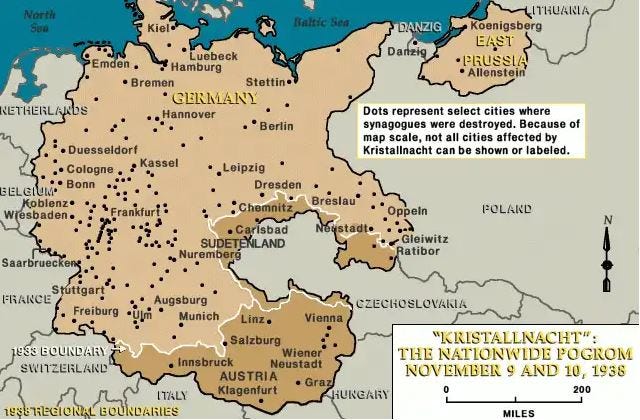
The pretext—or rather, excuse—for Kristallnacht was the assassination of a German diplomat at the hands of a 17-year-old Jewish boy. In the hours following the shooting, Nazis and their sympathizers raged against anything Jewish, including synagogues, all over Germany, Austria, and Poland.
Immediately, Heinrich Himmler announced that Jews would be barred from owning firearms. Nazi propagandist Joseph Goebbels put out the message, “[E]very individual Jew will be held responsible. All Judah wants is war with us and it can have this war according to its own moral law: an eye for an eye and a tooth for a tooth.”
Of course, saying Judah wanted a “war” was not even a half-truth. It was a baseless lie. And seeking more than an eye for an eye defied the biblical standard. But Nazis, like other aggressors, invented any excuse to blame the victim.
Holocaust survivor Eddie Jaku wrote of being torn from his childhood bed—one he hadn’t slept in for years—during a surprise visit meant for his parents’ anniversary. Under an assumed (non-Jewish) name at college, Eddie happened to arrive home on Kristallnacht, with no family in sight. After bayoneting his little dog, and nearly beating him to death, Nazis forced Eddie to watch the destruction of the home that had been passed down in his family for 200 years. “I lost everything I lived for,” he thought, as he witnessed old friends and neighbors participate in mob violence.
“That night, atrocities were being committed by civilised Germans all over Leipzig, all over the country. Nearly every Jewish home and business in my city was vandalised, burned or otherwise destroyed, as were our synagogues. As were our people. It wasn’t just Nazi soldiers and fascist thugs who turned against us. Ordinary citizens, our friends and neighbours since before I was born, joined in the violence and the looting. When the mob was done destroying property, they rounded up Jewish people--many of them young children--and threw them into the river that I used to skate on as a child. The ice was thin and the water freezing. Men and women I’d grown up with stood on the riverbanks, spitting and jeering as people struggled. ‘Shoot them!’ they cried. ‘Shoot the Jewish dogs!’ What had happened to my German friends that they became murderers? How is it possible to create enemies from friends, to create such hate?" (Eddie Jaku, The Happiest Man on Earth)Kristallnacht marked the beginning of seven years of violent terror against the Jewish people. Today, Eddie’s question remains: how is it possible?
In Mein Kampf, Adolf Hitler said he was not raised antisemitic. According to his recollection, his father was “more or less a cosmopolitan” who would have considered anyone speaking derogatorily against Jews “uneducated reactionaries.” At the age of fourteen or fifteen, about the time his father died, young Hitler was still uncomfortable with religious disputes, and said he didn’t like “hearing remarks against” Jewish people in those days. He wrote, “I thought they were persecuted on account of their Faith,” and “were so much like other human beings that I even looked upon them as Germans.”
The family doctor, Eduard Bloch—a Jew—treated Hitler’s dying mother while Adolf pursued art. Describing the woman as “deeply religious” and “kind,” Bloch said she “would turn in her grave if she knew what became of” her son. The untimely death of his mother left eighteen-year-old Adolf without parents, and led the doctor to call Hitler “the saddest man I had ever seen.” Perhaps it was bitterness toward God that moved Hitler to later write, “my mother’s death put a brutal end to all my fine projects.”
But grief alone doesn’t transform a man into a monster.
In his book, Hitler described why he changed. It’s simple. He abandoned the sensibilities of his parents in favor of wild and defamatory conspiracy theories.
A major factor in his transformation was the antisemitic hoax, “The Protocols of the Meeting of the Learned Elders of Zion,” a work of fiction passed off as minutes of a Jewish plot for world domination. Hitler said the fact that Jews deny the protocols is “alone evidence in favor of their authenticity.” (Circular reasoning, anyone?)
Conspiracy theories fed his ego and made him believe he was initiated into secrets others couldn’t see. After concluding Jews were different, and thus worthy of suspicion, “I gradually came to hate them,” Hitler wrote. To make himself larger, he diminished Jews as “parasites” who were conspiring to bring about societal ills, “white slave traffic,” Marxism, and “Social Democracy.” Although Social Democracy was his first political impulse, he boasted of having the brains to unravel it as a Jewish trap. (“Knowledge of the Jews is the only key whereby one may understand the inner nature and therefore the real aims of Social Democracy,” he asserted.)
Newly-obsessed with blaming “the Jews,” Hitler nursed an inhuman rage against innocent people who never even poked him in the eye. “From being a soft-hearted cosmopolitan I became an out-and-out anti-Semite,” he proudly declared.
Pointing to the protocols, Hitler fear-mongered that Jews were scheming to exploit capitalism and oppress workers, for the purpose of creating a demand for the ideas of “the Jew, Karl Marx,” in order to “enslave and thereby annihilate the non-Jewish races.” Calling Jews “the tyrant of the peoples,” he falsely predicted that “[i]n the course of a few years,” they would seek to “exterminate” the intelligent.
As often happens, the accusations turned out to be self-projections. In slandering Jews in his book with unfounded claims of a homicidal plot, the future mass murderer enlisted others to act out the cruel intent of his heart. To manipulate, he demagogued bigoted conspiracy theories and exploited the very religious prejudices that originally made him “uncomfortable.” Religious bigotry was now a potent ally, with centuries of moldy history in many churches.
Although he dearly wished to abuse the Bible, it was unfamiliar territory for Adolf Hitler. It appears he never read the sacred text—not with eyes open—nor moved past a second-hand or superficial understanding. In Mein Kampf, he made just one reference to Jewish scripture, and absurdly claimed that “the Jew has never had a State which was based on territorial delimitations, and therefore never a civilization of his own,” as though someone forgot to pass the crib sheet notifying him of the famed kingdoms of Israel and Judah, or the territorial division by tribe.
Hitler further displayed biblical illiteracy by mocking “the so-called ‘chosen’ people” with passionate envy—oblivious to the origin of this designation in the word of God.
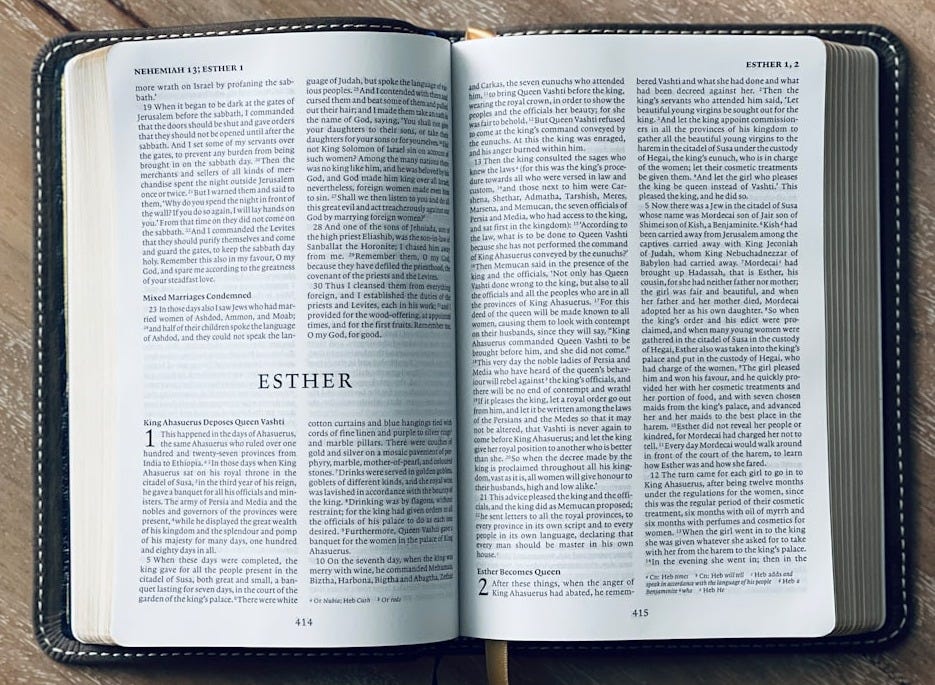
He probably never heard of Haman, nor feared with any foreboding that he would likewise die a notorious scoundrel. It seems he never read the promise to Abraham, “I will bless those who bless you, and I will curse him who curses you; and in you all the families of the earth shall be blessed.” (Instead, Hitler prayed for the opposite: “Lord, bless our struggle.”)
Compounding his lack of biblical knowledge, Hitler portrayed Jesus as antisemitic. Maybe he didn’t know Jesus was a Jew?
Crude and dehumanizing conspiracy theories had a corrupting influence on Hitler. A lack of biblical knowledge didn’t help. Dishonoring his parents, hating others, blaming God, and elevating himself were choices that likely contributed to his madness.
But the reason so many regular people stood by, or participated, while Jews were attacked and abused was not simply because Hitler and the Nazis were corrupt. Nazism could never find toleration or support unless mainstream culture was already desensitized toward anti-Jew libel, from the pulpit to the protocols. The mindset was primed to not question the buffoonish rhetoric of a hate-filled demagogue, in the hope that good would come from evil. The idea that God still loved the lost sheep of Israel, that He would hold nations accountable for how they treated even “the least” of Jesus’ brethren, that He would curse those who curse Abraham’s seed—these considerations never troubled the public mind.
So long as Jews were considered different, even dangerous, hearts were hardened against their suffering.
Holocaust survivor Elie Wiesel observed, “Indifference is always the friend of the enemy, for it benefits the aggressor, never his victim, whose pain is magnified when he or she feels forgotten.”
“Indifference can be tempting—more than that, seductive. It is so much easier to look away from victims. It is so much easier to avoid such rude interruptions to our work, our dreams, our hopes. It is, after all, awkward, troublesome, to be involved in another person's pain and despair.”
Wiesel remembered that Franklin D. Roosevelt once refused a ship of 1,000 Jewish refugees from Germany. When they returned home, many likely met death. “I don't understand,” said Wiesel. “Why the indifference?”
A lack of empathy is truly a killer.
Even in our modern era, indifference causes many to look the other way at the sight of a victim. October 7, 2023, showed that Jews can still be murdered, kidnapped, starved, beaten, and blamed. An estimated two dozen living Israelis are in Hamas tunnels today, such as Alon Ohel, yet the world goes about its business, generally without even a prayer or thought.

Russia’s aggressive war against Ukraine is another example of victim-blaming and hardheartedness. Propaganda and conspiracy theories have had a damaging effect, to the point that support has sprouted in unlikely places for the mass murderer, Vladimir Putin, in his bid to reinstate the Evil Empire.
Ukrainian president Volodymyr Zelenskyy—a Jew who lost family members in the Holocaust—relies on a gritty optimism based in faith. For Easter, he said: “Evil may have its hour, but God will have His day. This is one of the meanings enshrined in the story of Christ. Of His earthly suffering and death—and of His resurrection, and the truth that sooner or later, yet inevitably, evil will retreat, and life will triumph.”
At home in the USA, and all over the world, women kill their offspring daily at the hands of quiet professionals sporting what C.S. Lewis described as “white collars and cut fingernails.” (The Screwtape Letters)
Rather than stop the murders or punish the perpetrators, most people seem fine with using abortion for political gain one way or the other. Or they simply ignore the evil that defies our claim that human rights come from God and must be respected under all conditions and for all people.
And what of immigrants recently incarcerated by the U.S. in a foreign prison for life, without trial, and deprived of anything resembling due process? Three years into El Salvador’s suspension of constitutional rights, in the name of cracking down on terrorism, an estimated 1.4% of the country’s population has been sent to facilities that are essentially modern concentration camps. Hundreds have died in prisons, under abhorrent conditions. The United States abruptly sent roughly 260 men to El Salvador’s brutal CECOT. Most have no criminal record. If left unchecked, and without recourse for the innocent and abused, the situation will only worsen and sink into lower—yet too-familiar—depths.
Donald Trump has called on El Salvador to “build about five more places” like CECOT, for “homegrowns”—meaning, U.S. citizens. “I’d like to include them in the group of people to get them out of the country,” he said, despite the lack of presidential power to order incarcerations in foreign prisons.
We look back with judgment on those who stood idly by and watched the first aggression break out against the Jews on Kristallnacht. Likewise, we will be examined for our indifference toward suffering and abuse.
As Elie Wiesel said, “I swore never to be silent whenever and wherever human beings endure suffering and humiliation. We must always take sides. Neutrality helps the oppressor, never the victim. Silence encourages the tormentor, never the tormented.”
When the nations are judged, many will say, “‘Lord, when did we see You hungry and feed You, or thirsty and give You drink? When did we see You a stranger and take You in, or naked and clothe You? Or when did we see You sick, or in prison, and come to You?’ And the King will answer and say to them, ‘Assuredly, I say to you, inasmuch as you did it to one of the least of these My brethren, you did it to Me.’” (Matthew 25:37-40, NKJV)
Despite all the lessons from the Holocaust, and the bright light on the conditions that made it possible, mainstream American politics is kicking away the necessary buffer of basic decency and moral sense. Empathy is under attack by none other than Elon Musk. Even before his “my heart goes out to you” salute, he tweeted an antisemitic conspiracy theory and gave room for neo-Nazis on his platform. And, right out of the gate with DOGE, he called beneficiaries of federal programs “the Parasite Class,” and followed up two weeks later with a stunning condemnation of empathy.
“The fundamental weakness of Western civilization is empathy,” he told Joe Rogan on February 28th. “The empathy exploit. They’re exploiting a bug in Western civilization, which is the empathy response.” Whoever “they” are—the poor, disabled, elderly, or immigrants—Musk portrayed minorities as a threat to the majority. “We've got civilizational suicidal empathy going on,” he said, with a utilitarian nod to caring only “for civilization as a whole.”
We have a choice to make. Either we join Elon Musk in considering empathy a suicidal “bug,” or we stand without compromise for the rights of every human being.





